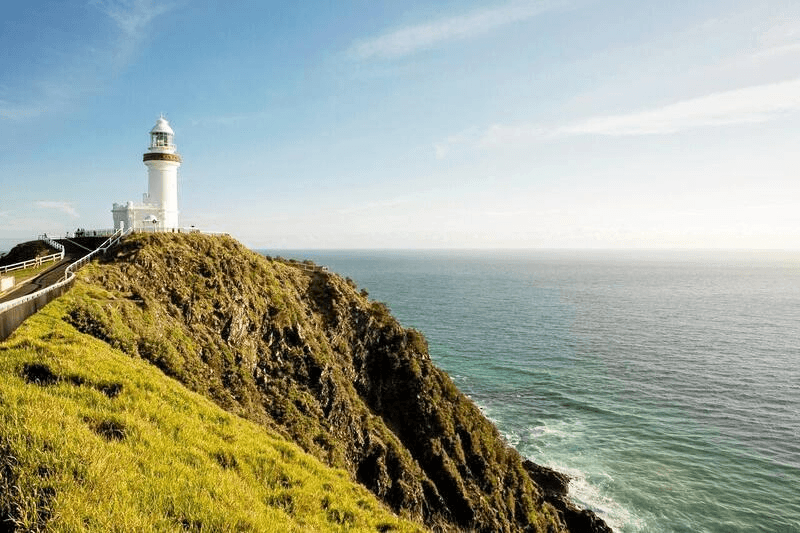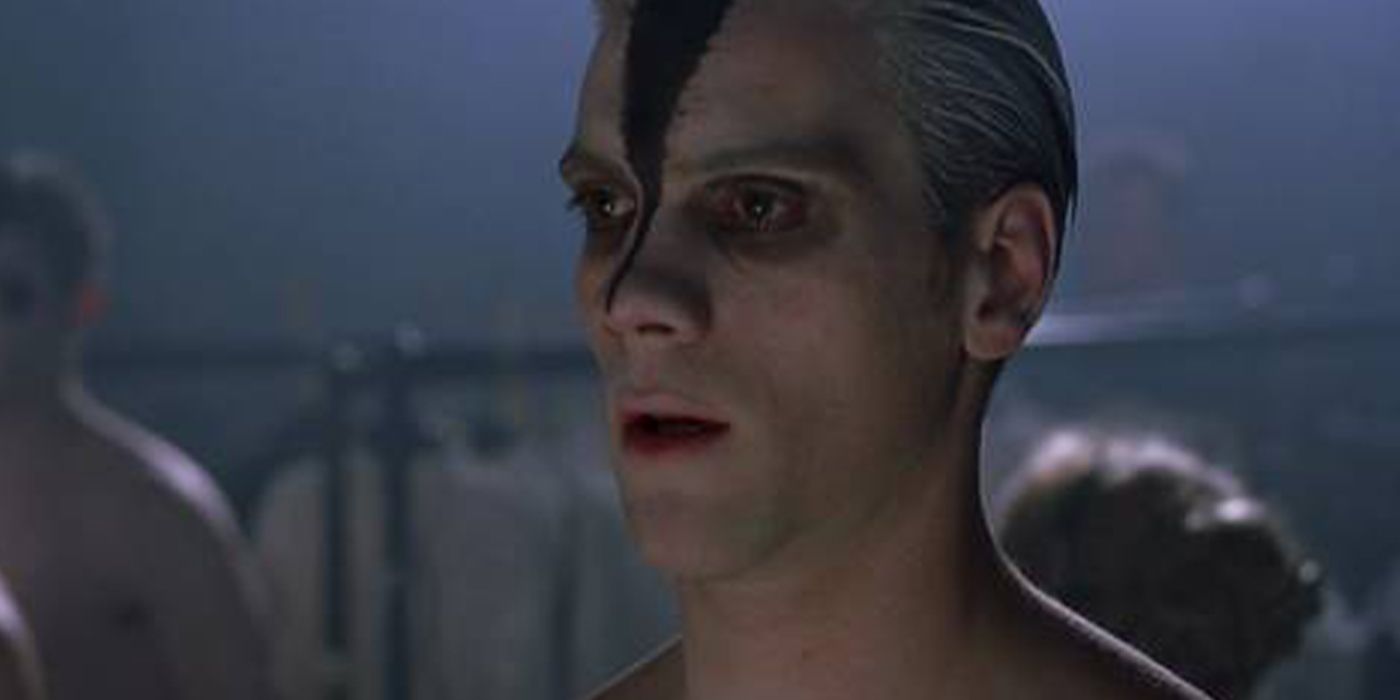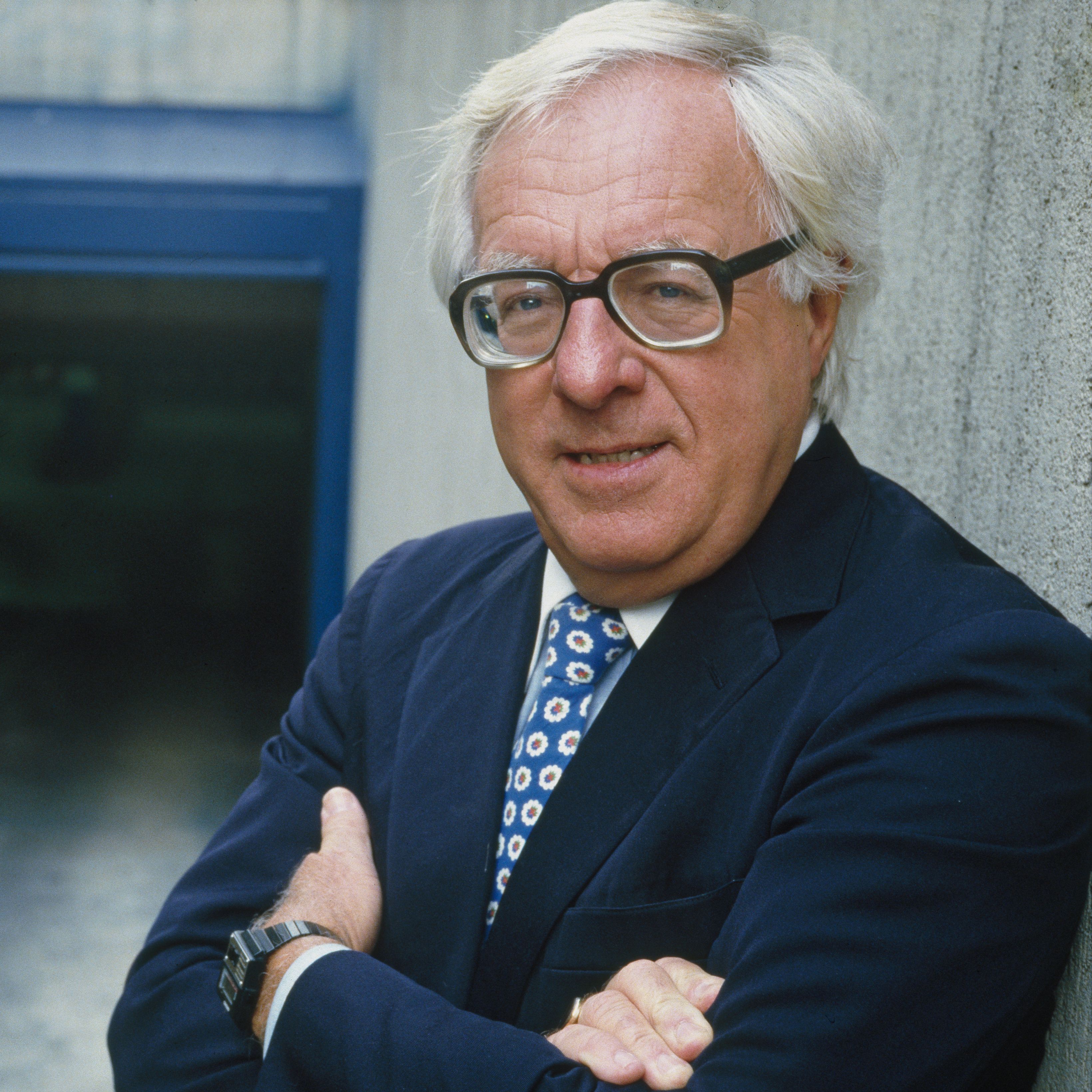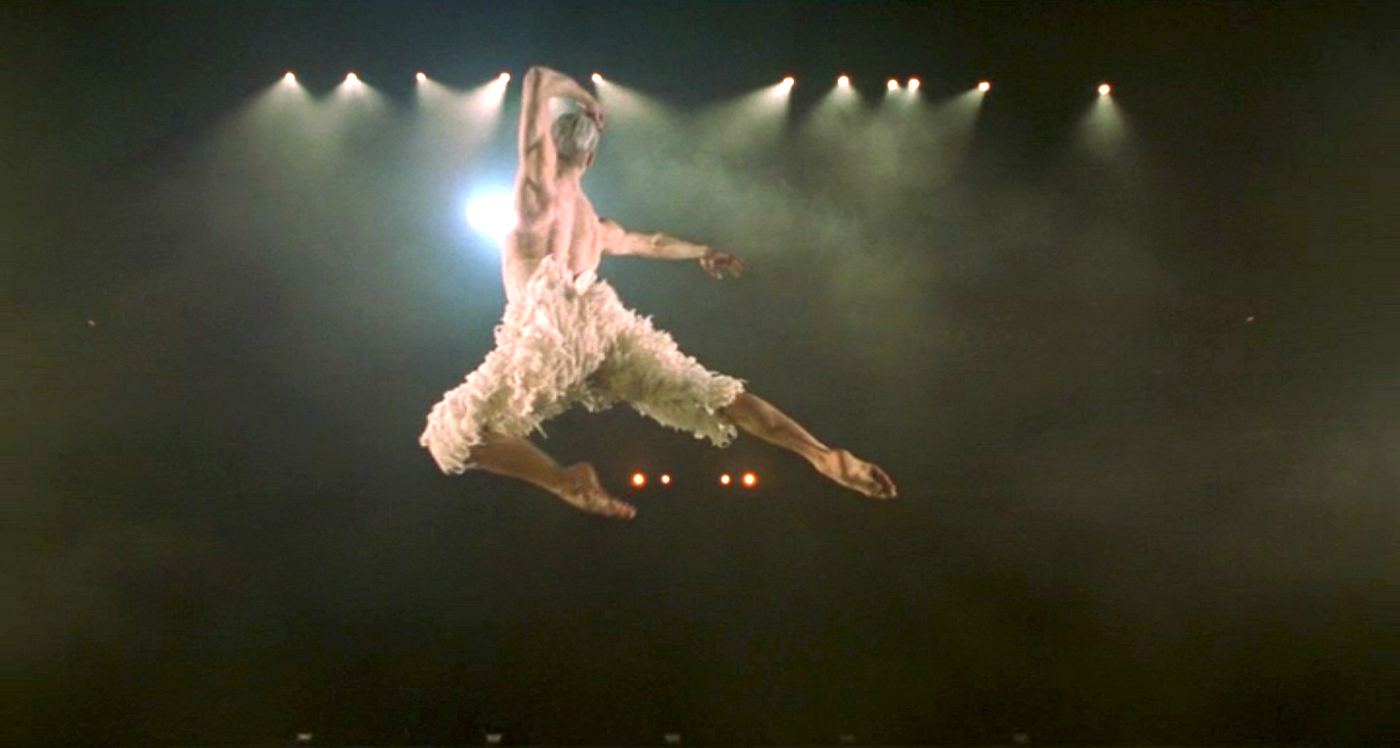Billy Elliot
Henry Lawson
Robert Gray poetry
The Craft of Writing

This is a picture of the real place in which 'Billy Elliot' is set. In which town and country, is the film set?
Durham in North East England
Name all the modules you have studied throughout the HSC course.
(*Hint* You've seen these written out a GAZILLION times on handouts and PPT presentations throughout the year.)
Common Module: Texts and Human Experiences
Module A: Language, Identity & Culture
Module B: Close study of Literature
Module C: The Craft of Writing
What is Billy doing in this shot?
Cleaning his mother's grave stone.
Identify TWO recurring motifs in the film.
- Swan Lake
- The Miner's Strike
- Dancing
- The boxing gloves
- The piano
“Bush with no horizon, for the country is flat.”
a) Identify the story
b) Identify the language device
a) The Drover's Wife
b) Visual Imagery, Symbolism
Robert Gray said that his poem, 'Byron Bay: Winter', was written in a traditional poetic form, but with loosened rhyme and rhythm.
What is the traditional form he has used?
Ballad
"Dear Mrs Dunkley. You're long gone, and I'm nearly seventy. But, oh, I wish you weren't dead."
What language technique is made prominent by the use of contractions and the interjection 'oh' in this line from 'Dear Mrs Dunkley'?
Colloquial language

Where is this famous location, as referenced in one of Robert Gray's poems?
Cape Byron Lighthouse, Byron Bay, NSW
Explain TWO purposes of Module C: The Craft of Writing.
Answers from the rubric could include:
- to strengthen and extend their knowledge, skills and confidence as writers
- to learn to write for a range of authentic audiences and purposes to convey ideas with power and increasing precision
- to study prescribed texts to use as models and stimulus for the development of their own ideas and written expression
- to examine how writers of complex texts use language creatively and imaginatively for a range of purposes, to describe the world around them, evoke emotion, shape a perspective or to share a vision
- to learn to appreciate, analyse and assess the importance and power of language
- to reflect on the complex and recursive process of writing to further develop their ability to apply their knowledge of textual forms and features in their own sustained and cohesive compositions
- to generate and explore ideas through discussion and speculations.
- to engage in the stages of drafting and revising
- to experiment with a range of language forms and features (for example imagery, rhetoric, voice, characterisation, point of view, dialogue and tone)
- to develop editing skills, learning to apply the conventions of syntax, spelling, punctuation and grammar appropriately and effectively for publication
- to work independently and collaboratively to reflect, refine and strengthen their own skills in producing crafted, imaginative, discursive, persuasive and informative texts
List all FIVE themes we have focused on with Henry Lawson.
- Melancholy
- Gender
- Harshness of the Australian Bush
- Mateship
- Resilience/Stoicism
(a) What might the hill be symbolic of?
(b) What is this shot and why is it significant?
a) The hill is symbolic of Billy's journey as he overcomes his adversity.
b) High angle shot as billy makes his way up the hill, slowly accepting himself
a) What is a Trade Union?
b) What are three things modern trade unions fight for?
a) A union is an organisation of workers or employees who have joined together to achieve common goals.
b) These goals can include seeking higher pay and better working conditions, fighting for job security and protecting the integrity of a trade.
This question has TWO parts.
(a) In which NSW town did Robert Gray grow up?
(b) Which of Robert Gray's hobbies does he view as a natural complement to poetry?
(a) Coffs Harbour
(b) Painting
What fictional genre does Ray Bradbury's, 'The Pedestrian' short story, fall under?
Dystopian fiction

What shot type and lighting technique is used in this scene from 'Billy Elliot'?
Close-up shot and low-key lighting
Complete the cloze passage below from the Common Module rubric:
Students explore how texts may give insight into the a_______s, pa_______ and in_____________ in human behaviour and motivations.
Students explore how texts may give insight into the ANOMALIES, PARADOXES and INCONSISTENCIES in human behaviour and motivations.
What are the three themes we studied for Billy Elliot?
a) Overcoming Adversity
b) Grief and Loss
c) Search for Identity
Finish this quote:
"Sorta _________ good. Sorta stiff and that, but once I get __________... then I like, forget ____________. And... sorta disappear. Sorta disappear. Like I feel a change in my whole body. And I've got this fire in my body. I'm just there. Flyin' like a _______. Like electricity. Yeah, like ______________."
"Sorta feels good. Sorta stiff and that, but once I get going... then I like, forget everything. And... sorta disappear. Sorta disappear. Like I feel a change in my whole body. And I've got this fire in my body. I'm just there. Flyin' like a bird. Like electricity. Yeah, like electricity."
Identify and describe the effect of THREE language techniques used in the following lines:
“I carried the rope in case of accident,… or hang myself... No, now I come to think of it, I carried a revolver for that”
Dark humour - An Accident
Irony - Revolver
Symbolism - Rope
Read this poem excerpt:
"The train’s shadow, like a bird’s,
flees on the blue and silver paddocks,
over fences that look split from stone,
and banks of fern,
a red bank, full of roots,
over dark creeks, where logs are fallen,
and blackened tree trunks."
(a) What poem is this taken from?
(b) What technique is being employed in this excerpt, which causes an accumulation of visual imagery?
(a) Journey, the North Coast
(b) Asyndeton
After writing a creative piece, there are many questions you might ask yourself during the editing process to check the quality of your work. What are THREE of these questions?
Answers may include:
- Have you successfully achieved your purpose?
- Have you used language forms and features to create meaning?
- Have you used symbolism, imagery, rhetoric, voice, characterisation, point of view, dialogue and tone to establish your purpose?
- Have you used simple and complex sentences to create meaning throughout your response?
- Is the meaning within your sentences clear?
- Have you proofed your spelling, punctuation and grammar?
- Have you received feedback from your peers and your teacher?


In Module C: The Craft of Writing, you have studied TWO prescribed texts written by these people.
Name them as well as the title and form of their respective text.
Pic 1: Helen Garner ('Dear Mrs Dunkley') Discursive
Pic 2: Ray Bradbury ('The Pedestrian') Imaginative/Dystopian
Complete the cloze passage below from the Module B rubric:
Students explore and analyse the particular id___ and cha____________s of the text and understand the ways in which these ch_____________s establish its di_________ qualities.
Students study one text chosen from the list of prescribed texts. They engage in the extensive exploration and interpretation of the text and the ways composers (authors, poets, playwrights, directors, designers and so on) portray pe____e, ideas, set_____ and sit_______ in texts.
Students explore and analyse the particular IDEAS and CHARACTERISTICS of the text and understand the ways in which these CHARACTERISTICS establish its DISTINCTIVE qualities.
Students study one text chosen from the list of prescribed texts. They engage in the extensive exploration and interpretation of the text and the ways composers (authors, poets, playwrights, directors, designers and so on) portray PEOPLE, ideas, SETTINGS and SITUATIONS in texts.
This question has THREE parts. Identify the correct name of the poem from which these quotes have been drawn:
(a) "And standing where I see the mirage of the city/I realise I am in the future."
(b) "Sprigged trees; a vista of Pre-Raphaelite shine:/beneath gentian hills, a billiard table green;"
(c) "They seemed to whisper, slipping amongst each other,/always hovering, as though resolve were ill."
(a) Flames and Dangling Wire
(b) Description of a Walk
(c) Harbour Dusk

a) Identify TWO techniques from this shot.
b) Explain how this shot emphasises the search for identity.
a) Music, Symbolism, lighting, Mis en Scene, Salience
b) Billy's 'leap' of faith allows him to move beyond Durham 'into the world' of his passion, Ballet. It represents Billy finding his voice through dance and the freedom that accompanies this identity.
Identify and Explain THREE assumptions of Colonial Australia?
What are the assumptions?
Assume that British culture has strong influence on Colonial life, not able to adapt British practices to Australian reality
Assume that gender stereotypes/roles are rigid (strict). Assume that bush life is romanticised and beautiful, despite suffering from inhospitable landscapes and natural disasters
Read the following excerpt:
"Someone who worked here would have to weep,
and so we speak. The rims beneath his eyes are wet
as an oyster, and red.
Knowing all that he does about us,
how can he avoid a hatred of men?"
(a) What poem is this taken from?
(b) Identify THREE techniques and explain their effect on meaning.
(c) Why would the speaker assert that a tip worker would hate people as a result of his/her job?
(a) Flames and Dangling Wire
(b) Alliteration: Emphasises pity and sorrow.
Sibilance: Emphasises rare moment of human contact.
Alliteration: ‘rims’/‘red’
Simile: Denotes pain and suffering – our suffering.
Plural pronoun: Acknowledges shared/collective blame.
Rhetorical question: Challenging who we are and what we've become.
(c) The speaker is implying that being surrounded by mountains of human waste would be a continual reminder to the worker of our selfishness and material excess, disregarding our impact on the health of the environment.
What are the THREE areas you need to consider for Module C?
- Stimulus
- Language
- Structure

This question has TWO parts.
(a) Identify THREE film techniques used in this shot.
(b) Explain the meaning behind this moment shown in the film.
(a) Over the shoulder shot, Mid-shot, Facial expresisons, Low-key lighting, Symbolic location (Boxing Hall), Music
(b) This moment occurs at Christmas. It is a pivotal moment between Billy and Jackie when Jackie realises Billy's potential. He decides to support Billy with his passion for Ballet.
Complete the cloze passage below from the Module A rubric:
Through their responding and composing students deepen their understanding of how language can be used to af____, ig____, re____, ch_______ or dis____ prevailing assumptions and beliefs about themselves, individuals and cultural groups.
Through their responding and composing students deepen their understanding of how language can be used to AFFIRM, IGNORE, REVEAL, CHALLENGE or DISRUPT prevailing assumptions and beliefs about themselves, individuals and cultural groups.
Identify the TWO of the artists, artworks or musicians referenced in the Robert Gray poems we have studied.
- 'The Raft of the Medusa' (Théodore Géricault)
- 'Nude Descending a Staircase' (Marcel Duchamp)
- Frédéric Chopin (musician)
- Paul Cézanne (painter/artist)
- Pre-Raphaelite brotherhood (painters/artists)
Describe THREE examples of either anomalies, paradoxes or inconsistencies evident throughout the film.
Billy - Anomaly/Inconsistency - Deviates from expected gender norms. However, his struggle to realise his dream demonstrates human inconsistency.
Dad - Paradox - The dad fights against Billy's dreams, however, will do anything to help him achieve them.
Michael - Anomaly - Deviates from expected gender norms.
Mrs. Wilkinson - Inconsistency - Supports Billy as a motherly figure, however, can have outbursts.
Debbie - Inconsistency - Seems innocent and sweet, however prompts Billy
*Billy learning how to dance in the same hall in which he enters to "become a man."
Fill in the blanks:
How their responses to __________, spoken, audio and visual texts can shape their self-_____________.
Impact texts have on shaping a sense of _____________ for individuals and/or ________________.
Deepen their understanding of how ____________ can be used to __________, i_________, r_________, c___________ or disrupt ____________ ____________ and beliefs about themselves, individuals and ____________ groups.
How their responses to written, spoken, audio and visual texts can shape their self-perception.
Impact texts have on shaping a sense of identity for individuals and/or communities.
Deepen their understanding of how language can be used to affirm, ignore, reveal, challenge or disrupt prevailing assumptions and beliefs about themselves, individuals and cultural groups.
Identify FOUR themes of Robert Gray's poetry.
*Must be phrased as statements, not single words*
Answers may include:
- Consumerism and its destructive effects on the environment and degradation of the human spirit
- Urbanisation and its dehumanising effects
- The natural world as a catalyst for self-discovery/ personal isolation/transcendence (religious/spiritual)
- Human fragility/insignificance in comparison to the natural world
- Representations of Australian culture through familiar iconography
- The transformative power of personal experience and/or the journey
(a) Who is the protagonist in 'The Pedestrian'?
(b) What technique has this quote used: "The light held him fixed, like a museum specimen, needle thrust through chest"
(c) What technique in this 'Dear Mrs Dunkley' quote evokes Garner's accusatory tone? "You stared at me. "I beg your pardon?" You mimicked my flat, nasal, state-school accent. You corrected it. You humiliated me."
(a) Leonard Mead
(b) Simile
(c) Second person/direct address ("You")